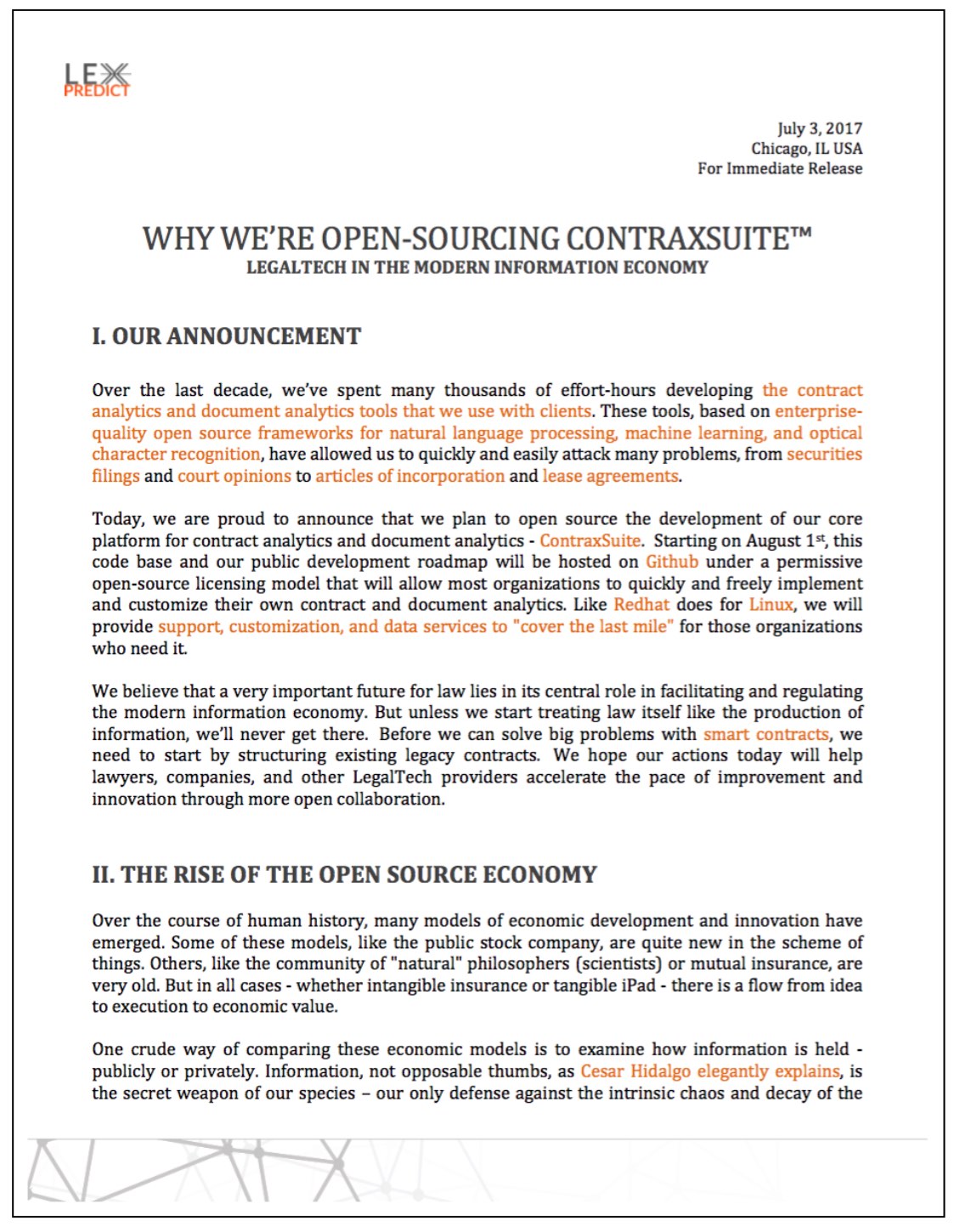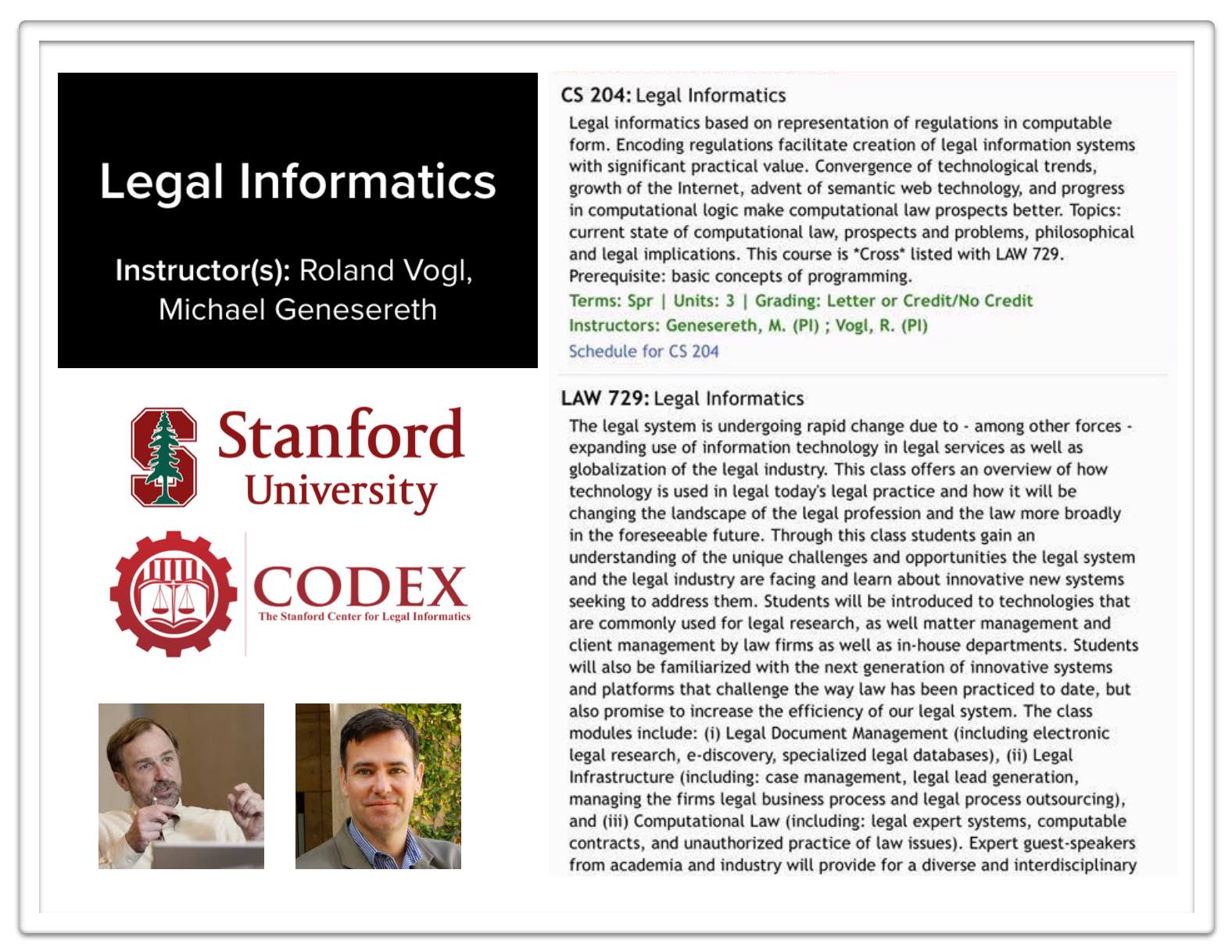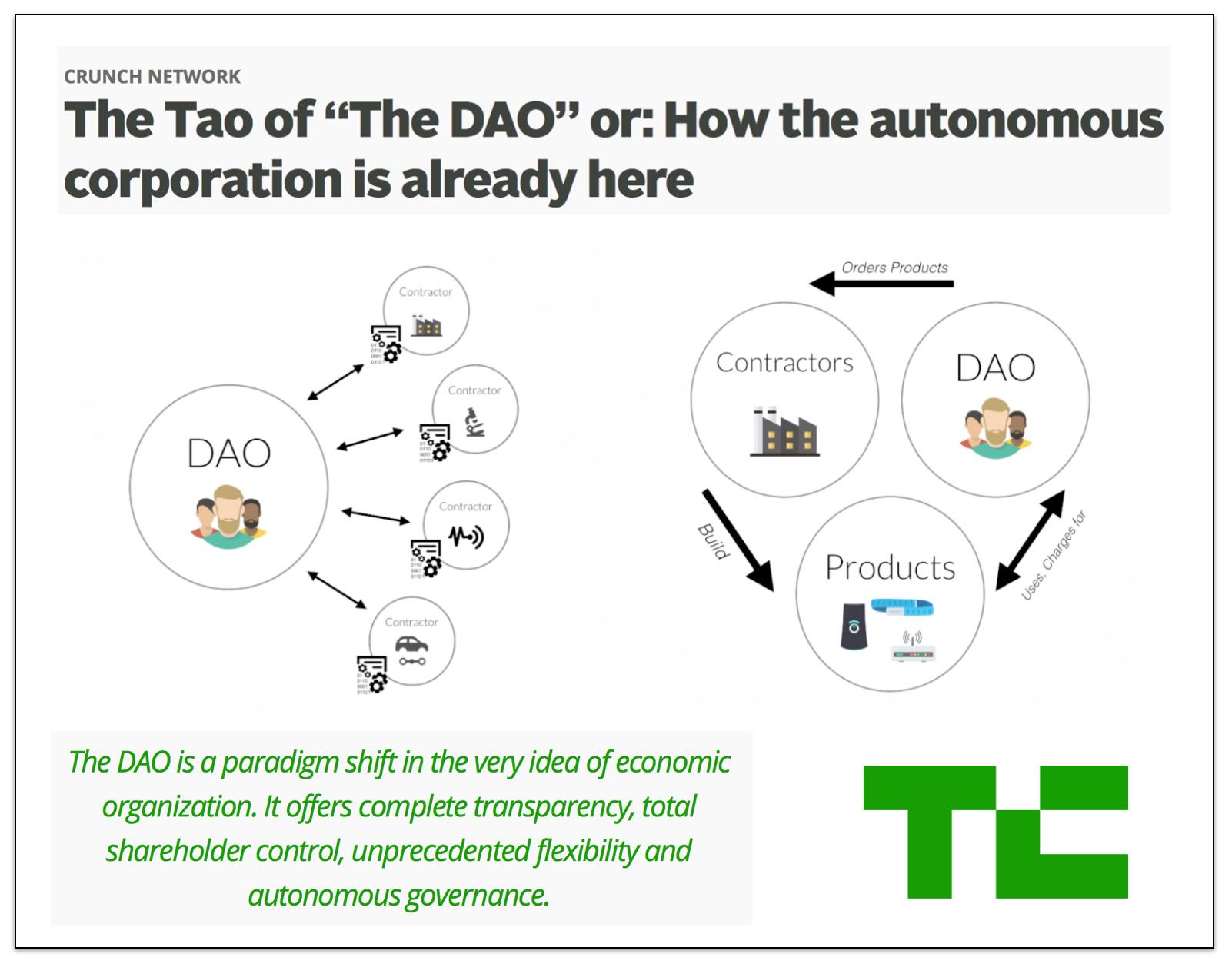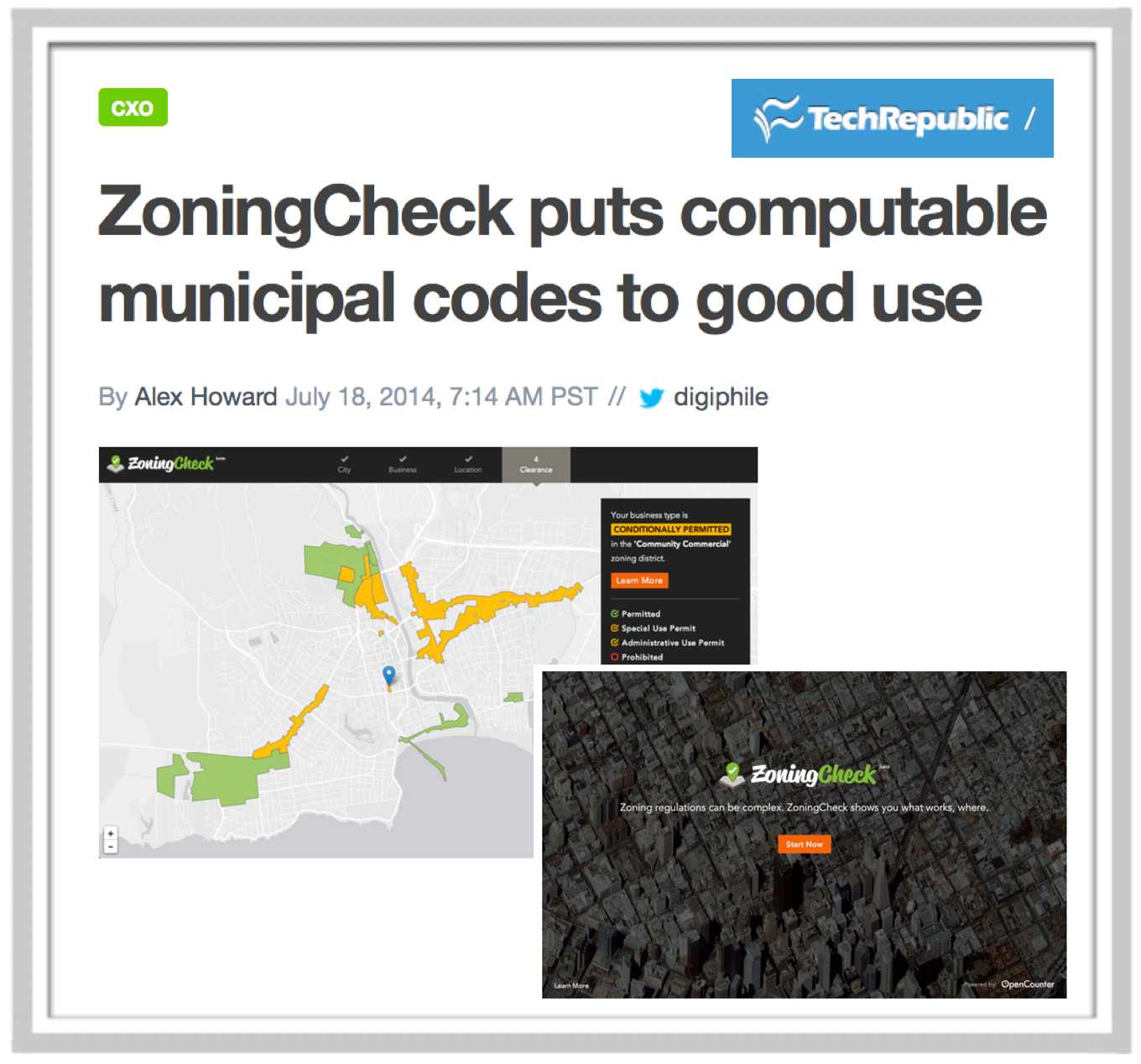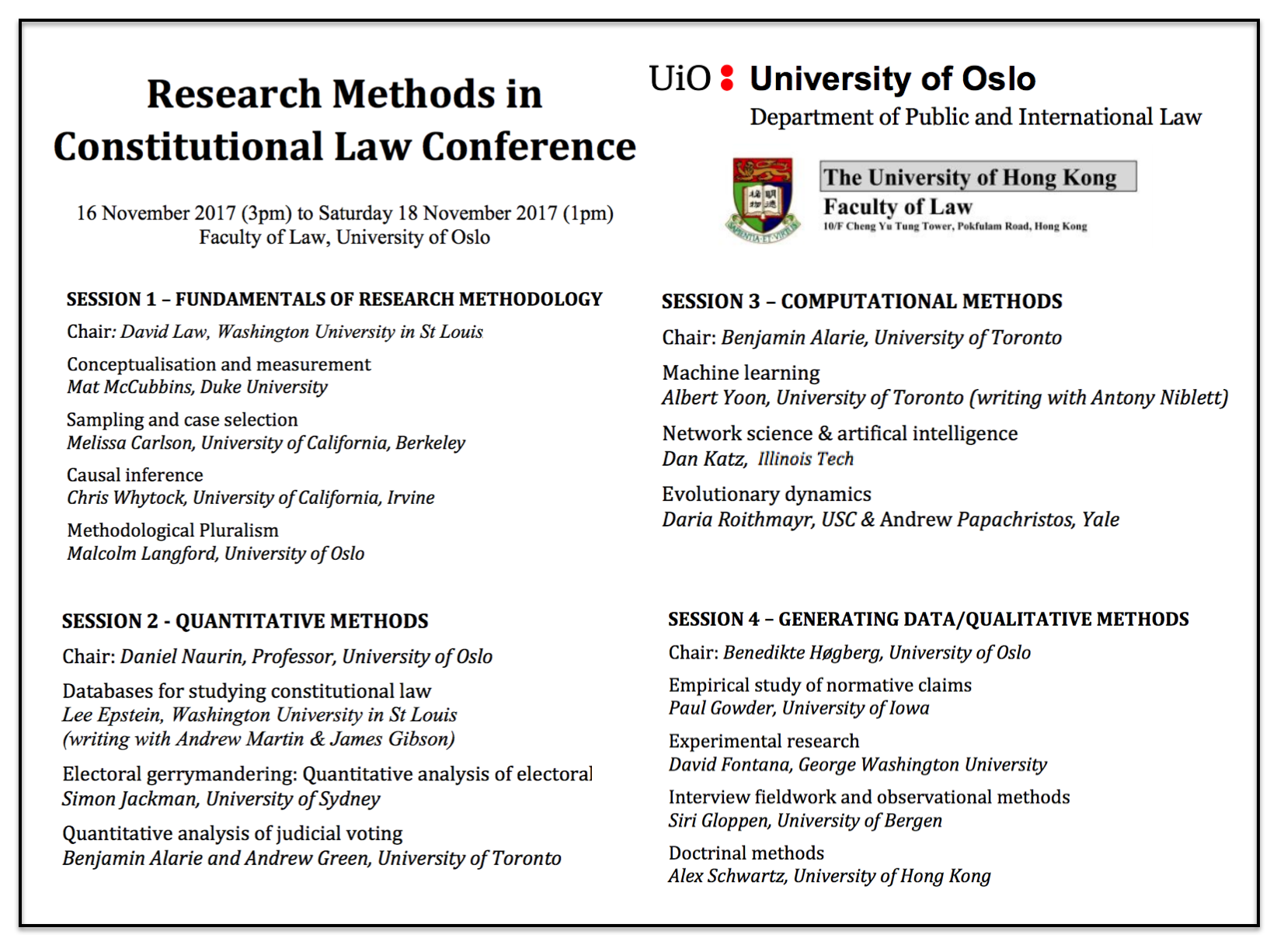 I do not speak at many (any) con law themed events but I am happy to be part of this conversation as it is related to making con law a more scientifically inclined field of human endeavor. #Science #LegalScience #Hashtag
I do not speak at many (any) con law themed events but I am happy to be part of this conversation as it is related to making con law a more scientifically inclined field of human endeavor. #Science #LegalScience #Hashtag
Tag: computational law
Why We’re Open-Sourcing ContraxSuite – Product Overview, Some Use Cases and Plan for Release
–
Following up on our prior announcement – here is a slidedeck offering more Product Overview, Use Case and Plan for Release.
Why We Are Open Sourcing ContraxSuite and Some Thoughts About Legal Tech and the Modern Information Economy
Today we here at LexPredict announce that we will be open sourcing our document analytics platform ContraxSuite (which works on a wide class of documents beyond just contracts).
From the Announcement – “Starting on August 1st, this code base and our public development roadmap will be hosted on Github under a permissive open-source licensing model that will allow most organizations to quickly and freely implement and customize their own contract and document analytics. Like Redhat does for Linux, we will provide support, customization, and data services to “cover the last mile” for those organizations who need it.
We believe that a very important future for law lies in its central role in facilitating and regulating the modern information economy. But unless we start treating law itself like the production of information, we’ll never get there. Before we can solve big problems with smart contracts, we need to start by structuring existing legacy contracts. We hope our actions today will help lawyers, companies, and other LegalTech providers accelerate the pace of improvement and innovation through more open collaboration.” (click here for full announcement or access via Slideshare)
Professor Katz as Guest Instructor for Legal Informatics Course @ Stanford Law School
It has my great pleasure to serve as a guest instructor in the Stanford Legal Informatics class! Thanks to Roland Vogl + Michael Genesereth for allowing me to connect with the students in this course.
Stanford CodeX Future Law 2016 Conference @ Stanford Law School
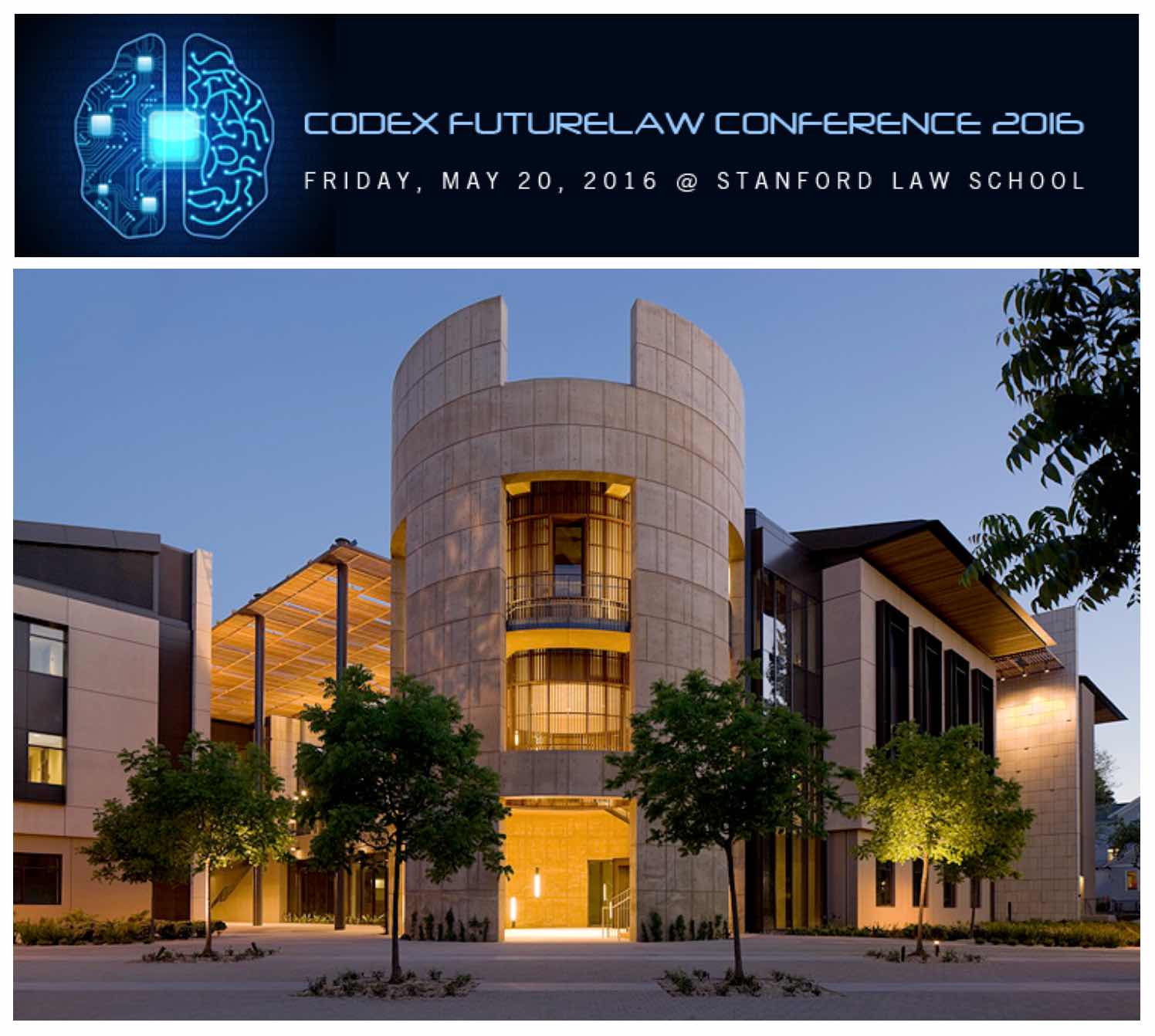
Tomorrow I will be at the Stanford CodeX Future Law 2016 Conference @Stanford Law School. I will be moderating the following panel:
Hot or Not – Watson and Beyond
What data analytics technologies are in use today?
What’s real and what’s marketing buzz?
What’s possible in the foreseeable future?
What are the implications for providers and consumers of legal services?
What are the limitations?
What are the policy implications?
Moderator:
Professor Dan Katz,
Illinois Tech – Chicago-Kent College of Law, @computational
Speakers:
Noah Waisberg, Kira Systems, @nwaisb
Khalid Al-Kofahi, Thomson Reuters, @KKofahi
Charles Horowitz, The MITRE Corporation Informatics
Andrew Arruda, ROSS Intelligence, @AndrewArruda
Himabindu Lakkaraju, Stanford University, @hima_bindu
Legal by Design: A New Paradigm for Handling Complexity in Banking Regulation and Elsewhere in Law (Lippe, Katz & Jackson)
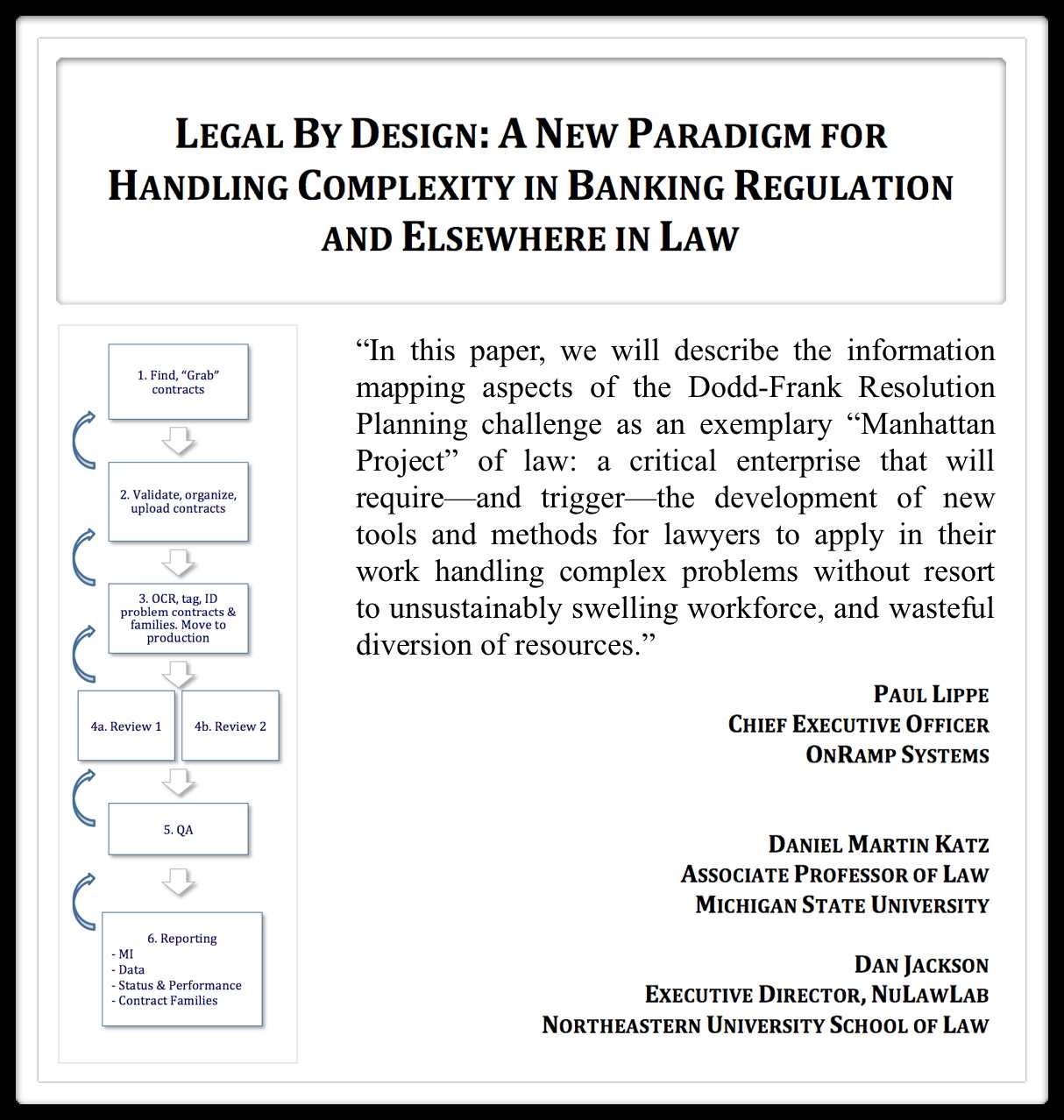 From SSRN abstract: “On August 5, 2014, the Federal Reserve Board and the Federal Deposit Insurance Corporation criticized shortcomings in the Resolution Plans of the first Systematically Important Financial Institution (SIFI) filers. In his public statement, FDIC Vice Chairman Thomas M. Hoenig said “each plan [submitted by the first 11 filers] is deficient and fails to convincingly demonstrate how, in failure, any one of these firms could overcome obstacles to entering bankruptcy without precipitating a financial crisis.”
From SSRN abstract: “On August 5, 2014, the Federal Reserve Board and the Federal Deposit Insurance Corporation criticized shortcomings in the Resolution Plans of the first Systematically Important Financial Institution (SIFI) filers. In his public statement, FDIC Vice Chairman Thomas M. Hoenig said “each plan [submitted by the first 11 filers] is deficient and fails to convincingly demonstrate how, in failure, any one of these firms could overcome obstacles to entering bankruptcy without precipitating a financial crisis.”
The first eleven SIFIs — Bank of America, Bank of New York Mellon, Barclays, Citigroup, Credit Suisse, Deutsche Bank, Goldman Sachs, JPMorgan Chase, Morgan Stanley, State Street Corp. and UBS — include some of the largest organizations in the world, with sophisticated internal and external teams of professional advisors. According to Jamie Dimon of JPMorgan Chase in 2013, it took 500 professionals over 1 million hours per year to produce JPMorgan Chase’s annual Resolution plan. With regulatory pressure increasing, that number is likely to be consistent or increasing across first-wave filers, and suggests significant spending by all filers.
So why were the plans criticized despite heavy compliance investment? The Fed and FDIC identified two common shortcomings across the first 11 SIFI filers: “(i) assumptions that the agencies regard as unrealistic or inadequately supported, such as assumptions about the likely behavior of customers, counterparties, investors, central clearing facilities, and regulators, and (ii) the failure to make, or even to identify, the kinds of changes in firm structure and practices that would be necessary to enhance the prospects for orderly resolution.” We believe this regulatory response highlights, in part, the need for lawyers (and other advisors) to develop approaches that can better manage complexity, encompassing modern notions of design, use of technology, and management of complex systems.
In this paper, we will describe the information mapping aspects of the Resolution Planning challenge as an exemplary “Manhattan Project” of law: a critical enterprise that will require — and trigger — the development of new tools and methods for lawyers to apply in their work handling complex problems without resort to unsustainably swelling workforce, and wasteful diversion of resources. Fortunately, much of this approach has already been developed in innovative Silicon Valley legal departments and has been applied by leading banks. Although much of the focus of the Dodd-Frank Act is on re-organizing and simplifying banks, we will focus here on the information architecture issues which underlie much of what should — and will — change about how law is delivered, not just for Resolution Planning, but more broadly.”
Katz + Bommarito Joining Forces for Joint Research Activities with CodeX – Stanford Center for Legal Informatics
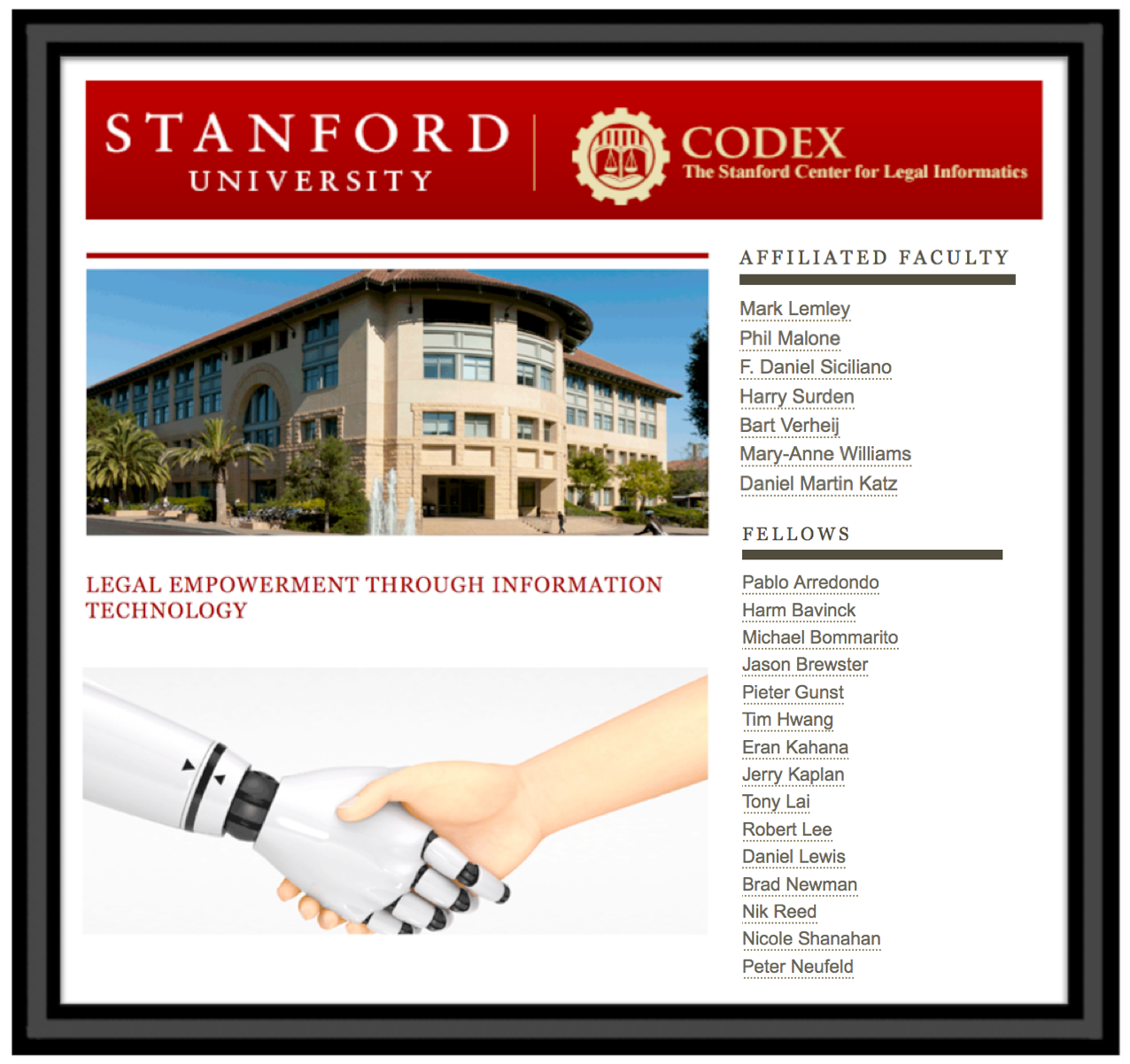 While our primary home will remain here MSU Law, Mike Bommarito and I are excited to be joining up with the good folks at CodeX – Stanford Center for Legal Informatics. Based upon our shared interests, we plan to work together on some joint research activities with some of the many talented individuals in the Stanford CodeX ecosystem. I will be joining CodeX as an External Affiliated Faculty and Mike will be joining as a CodeX Fellow. We are very excited to push forward together in the short, medium and long term!
While our primary home will remain here MSU Law, Mike Bommarito and I are excited to be joining up with the good folks at CodeX – Stanford Center for Legal Informatics. Based upon our shared interests, we plan to work together on some joint research activities with some of the many talented individuals in the Stanford CodeX ecosystem. I will be joining CodeX as an External Affiliated Faculty and Mike will be joining as a CodeX Fellow. We are very excited to push forward together in the short, medium and long term!

